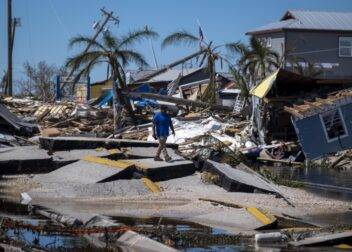Out of State Auto Insurance
Car insurance helps protect drivers against financial loss should they get into a car accident. Because so much is at stake, there are a lot of factors involved. For example, after an accident, your insurance company will likely need to know how the car was damaged, where the accident occurred and who was at fault — unless you live in a no-fault state. If the accident took place in a different state than your vehicle is registered, your insurer may even question if you have moved.
How you answer these questions may affect whether you are financially protected in an accident or not, so it is important to know the rules well in advance.
Does your car insurance cover you out of state?
Car insurance generally covers you in every state. However, there may be different rules for how your car insurance policy applies when you move out of state or drive out of the country, like to Mexico.
Mexico only legally recognizes car insurance issued in Mexico — meaning U.S. car insurance would not be considered appropriate coverage. If you get into an accident while you are there without proper coverage, you could be arrested and have your car impounded. The good news is that many insurers have partnered with Mexican car insurance companies so you can purchase the coverage you need without too much difficulty. Purchasing the required insurance ahead of time is recommended to ensure coverage for your whole trip. Usually, travel to Canada only requires proof of your current insurance, but you can check with your provider to make sure.
A common misconception is that your insurance will not cover you if you travel to a state where your insurance carrier does not do business. However, car insurance policies usually have a clause called a broadening clause, which protects drivers when they are out of state.
What is a broadening clause?
Should you travel to another state with different insurance requirements and get into an accident, your insurance company may cover you even if that state has dramatically different insurance laws. Providers refer to this as a broadening clause. A broadening clause makes it so you do not have to buy new insurance each time you travel to a state that might have more coverage requirements than your home state.
Does car insurance cover college students out of state?
Many states are fine with out-of-state college students staying on their parent’s policy as long as their parent’s address is still their primary residence, but some states are not. For example, some states such as Idaho are fine with you keeping your own policy, while others, like Massachusetts, may allow it, but want you to inform the police department about your car in advance.
It is possible that you will need to purchase a separate policy as a student if you live out of state year round, without going home over break, and own your own car. Consider contacting your insurance provider to make sure you are properly insured based on your situation and state’s requirements.
Can you insure a car in a state other than where you live?
Many people wondering about out-of-state car insurance may be disappointed. A vast majority of drivers will need to insure their car in the same state as where they live. Almost all states have their own coverage requirements that you will need to fulfill to drive legally. While many states have similar requirements, there are often nuances in the law that make them differ.
For example, both Kentucky and West Virginia require drivers to purchase a 25/50/25 policy, but Kentucky is a choice no-fault state so the claim’s process is entirely different there. In Kentucky, you may be responsible for your own medical injuries after an accident, but in West Virginia, the at-fault driver may be responsible.
Although you generally cannot have car insurance in one state while your vehicle is registered in another, there are some exceptions to having out-of-state auto insurance.
You are a resident of two states
t technically be ‘out of state’ since you will be living there). Most often, the rule of thumb is your car must be insured in the state where it is registered. Every state has its own rules and laws, so you will likely need to speak with your motor vehicle commission (MVC) or an agent from your insurance company to make sure you are complying with state law and are fully covered.
Many drivers may split time between states due to having a vacation home. If one home is used as your getaway and the other is where you live and work, then those factors will most likely be used to determine what insurance you need.
Time is also another variable. Some states will only issue tags to vehicles that are in the state for 183 days or more a year to qualify for dual residency. If you plan on having two cars — one at each residence — then you will likely need to insure each car in its respective state.
You are a member of the military stationed in another state
Most states allow military members to continue coverage from their home state while they are stationed elsewhere. However, this may not be the case in the event of a permanent change of station (PCS), where you spend 20 weeks or more at a location. When moving to another state, you will likely need to consider purchasing new coverage. If this happens, speak with an agent to ensure you are properly covered.
Frequently asked questions
How soon after moving do you need a new car insurance policy?
It depends on your car insurance company. Usually, the window is 30 to 90 days. If you know when you are moving, the best thing you can do is to speak with an agent as soon as possible and tell them your plans. Otherwise, you may run the risk of getting into an accident and finding out that you are not covered.
Can you get car insurance in a different state?
Applying for car insurance in a state that is not your primary residence can create issues with your insurance provider. Not only can this increase your risk of not having a claim paid, but it may be perceived as insurance fraud.
If you have residencies in two states, you may be able to insure your vehicle where it is primarily garaged.



